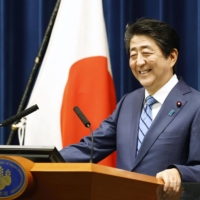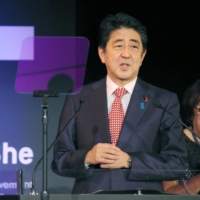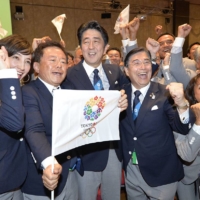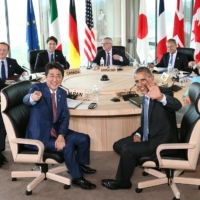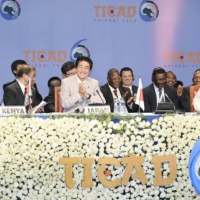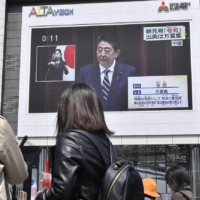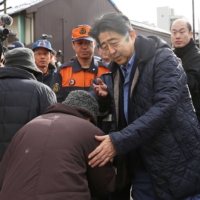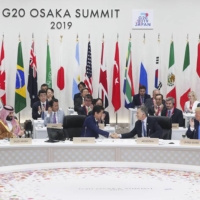On Sept. 27, dignitaries from across Japan and the world will gather at the Nippon Budokan Hall to pay their final respects to former Prime Minister Shinzo Abe, whose sudden demise on July 8 sent shockwaves through the country. Notable guests include U.S. Vice President Kamala Harris and former French President Nicolas Sarkozy. Abe was posthumously awarded the Collar of the Supreme Order of the Chrysanthemum, one of only four prime ministers to receive Japan’s highest honor.
In his 67 years, he was among the major players in the Liberal Democratic Party, and retains the honor of having spent nine years in office as Japan’s longest-serving prime minister. He served his first term in 2006, the youngest person to hold the office since World War II. After a break due to health issues, Abe returned for three more terms, from 2012 to 2020. Abe’s long term as prime minister will be remembered for his strong push toward strengthening Japan’s economy and a commitment to foreign policy and international exchange.

His 2012 three-pronged plan to fix Japan’s economic stagnation, Abenomics, aimed at bringing about growth via a more flexible fiscal policy, expansionary monetary policy and deregulation. A secondary part of this effort to increase Japan’s gross domestic product, “Womenomics,” has achieved some of its goals, resulting in an increase of women’s participation in the labor force of over 71%, higher than the U.S. and many European countries, as well as much-needed improvements in parental leave policies.
On the global stage the following year, he steered the government through Japan’s entry into the Trans-Pacific Partnership, a trade agreement between the United States and countries in the Asia-Pacific region. He stepped up to bring the other 10 members together to maintain the coalition in the form of the Comprehensive and Progressive Agreement for Trans-Pacific Partnership, after then-U.S. President Donald Trump’s sudden withdrawal from the agreement in 2017.
Abe’s aim to strengthen Japan’s foreign policy was multisided, including a new focus on the country’s soft power. He played a large role in promoting Tokyo as the destination for the 2020 Olympics and Paralympics, resulting in Japan winning the bid for Summer Games for the first time since 1964. Although the event was delayed for a year due to the COVID-19 pandemic, both the Olympics and the successful 2019 Rugby World Cup remain a legacy of his time in office.

On the global political stage, Abe’s dedication to the Quadrilateral Security Dialogue group, a coalition formed of Japan, India, Australia and the United States, was one of the ongoing efforts closest to the former prime minister’s heart. Although it was put aside for a decade after Abe first formalized the partnership in 2007, it was brought back in 2017 to bring a greater focus on collaboration within the Indo-Pacific region. While the original membership still stands, the group has held discussions with representatives from South Korea, New Zealand and Vietnam, a positive step forward for future partnerships in the region.
He also pushed for improving global health in developing countries, leading Japan to become the fifth-largest public donor to the Global Fund, providing funds to help end AIDS, tuberculosis and malaria on an international level. Abe was also part of launching the Coalition for Epidemic Preparedness Innovations, a foundation that aims to accelerate the development of vaccines to prevent more global pandemics that counts Japan as one of its largest donors.
In addition to his having a lasting legacy on Japan and its policies, Abe will be missed by his wife Akie (60) and brothers Hironobu Abe (70) and Nobuo Kishi (63).




